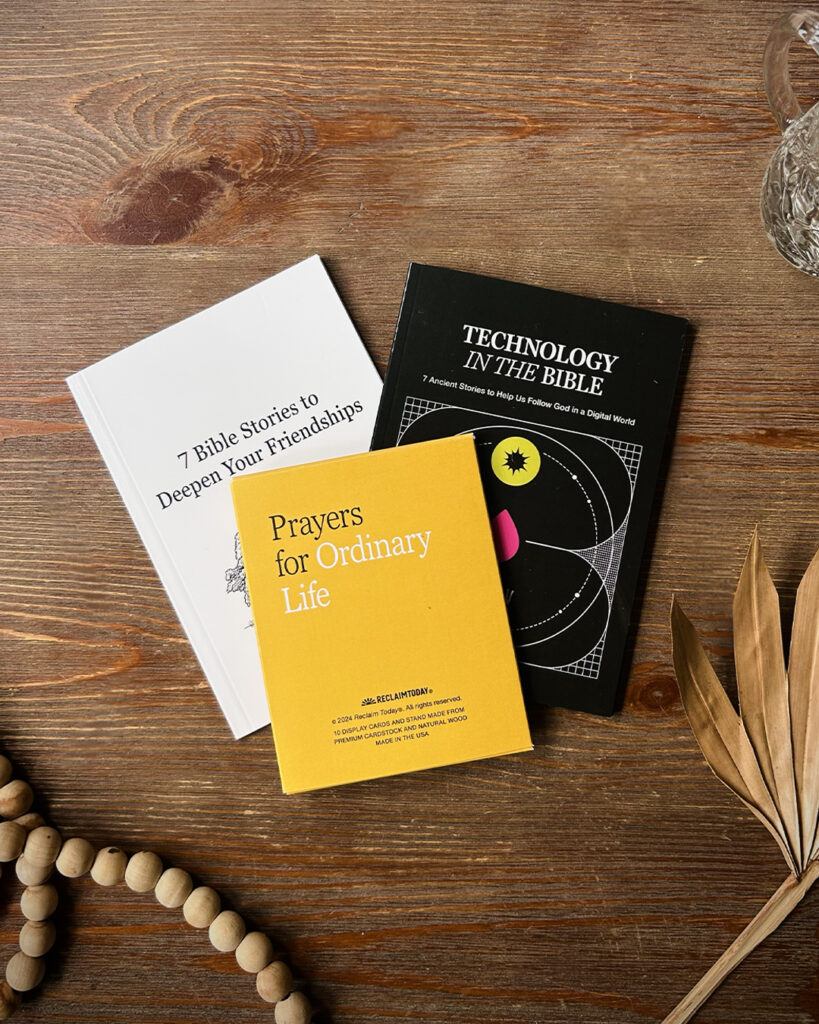How can an absence make us whole? This is the riddle, and the beauty, of silence.
The spiritual implications of silence are ancient, spanning the entire Bible beginning with creation, and extending into Revelation… with lots of mentions in between. God has met his people in silent moments (1 King 19:12, 1 Samuel 3:3-4), encourages the practice of silence (Psalm 62:1, Ecclesiastes 3:7), and even retreated to find silence himself (Mark 1:35, Luke 5:16).
So, for thousands of years, Christians have also retreated to sit silently in the presence of God.
Then, why does it still feel so foreign and uncomfortable? This discomfort isn’t a recent phenomenon either, but it’s one that feels exceptionally challenging today. Which is perhaps why Thomas Merton’s quote, decades old, still feels as relevant as ever– maybe even more so with distractions now infiltrating our pockets and earbuds. There’s so much beauty in the connectedness of our world, but also danger in living in a constant state of noise:
“The world of men has forgotten the joys of silence, the peace of solitude which is necessary, to some extent, for the fullness of human living. When that inner voice is not heard…life is always miserable and exhausting…If man is constantly exiled from his own home, locked out of his own spiritual solitude, he ceases to be a true person.” -Thomas Merton, The Silent Life
Without silence, we struggle to know ourselves and discover who God created us to be. When our minds are continually filled with outside stimuli, it becomes impossible to make space for the lessons that silence can teach us about God, about ourselves, and about his work in the world each day.
Here are a few lessons that are, perhaps, best learned in silence:
Silence Reveals.
When we commit to being quiet, silence helps us begin to notice all of the things inside that desire to come out– both positive and negative. One of the reasons people might dislike silence is because they aren’t at peace with certain aspects of themselves. They may also have been avoiding something hard—grief, discontentment, or an inner struggle. Silence can help us recognize, and reckon with, what is disrupting our peace.
Inner prayer prompt: God, please bring to mind those things that are causing me inner turmoil or grief.
Silence Roots.
Our world is busy and distracted. Silence grounds us in our current reality and puts distractions, busyness, and external pressures in their proper place. It allows us to listen for God amidst the chaos of daily life. By quieting the world around us, and quieting our minds, we try to let go of worries about the future and regrets from the past to sit with God, as we are, in this moment.
Inner prayer prompt: God, help me recognize where you might be calling amidst the cacophony of the other voices trying to get my attention.
Silence Reminds.
Silence can become a practice of humility and comfort. So much of life requires our performance and our best. Yet, silence gives us space to hear God reminding us that we don’t need to do anything to impress him— he doesn’t even need our words. We can just be with him, and that’s enough.
Inner prayer prompt: “God, release me of the pressure I feel inside to please you or impress you or others.”
Silence Restores.
Silence encourages rest for our bodies, minds, and spirits, providing an opportunity for God to refresh our souls. Time away from the distractions of the world and other responsibilities creates margin for renewal and restoration. And, any time spent in his presence is never wasted. In fact, can you think of anything more important than simply sitting with God?
Inner prayer prompt: Find a quiet place to relax in God’s presence, even if it’s only for 10 minutes. Close your eyes. Breathe deeply. Rest.
Want some creative ways to practice silence? We’ve got what you need right here.



